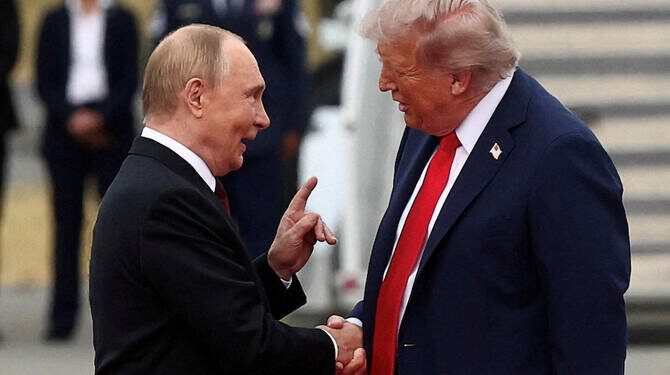At a time when much of the world seems to default to endless conflict and costly interventions, the Gulf Cooperation Council is voicing a message that resonates with common sense: diplomacy should come first. On Sunday, GCC Secretary General Jasem Al-Budaiwi emphasized the council’s firm stance in supporting peaceful dialogue as the most effective way to resolve regional and international crises. He specifically underscored the importance of backing international efforts to end the Russia-Ukraine conflict, describing diplomacy as “the optimal path to strengthening global peace and security.”
That message aligned with the recent high-profile summit between U.S. President Donald Trump and Russian President Vladimir Putin, held in Alaska. Al-Budaiwi praised the atmosphere of the meeting, noting that it “affirmed that disputes and crises can best be resolved through cooperation, constructive dialogue and peaceful solutions,” according to the Saudi Press Agency. It was a reminder that leadership rooted in face-to-face talks and clear-eyed negotiations is far more stabilizing than prolonged military escalation that drains resources and rattles global markets.
The Saudi Ministry of Foreign Affairs echoed this sentiment in a statement on Saturday, welcoming the Alaska summit and reaffirming the Kingdom’s position in favor of diplomacy. The ministry reiterated its support for dialogue as the preferred path to settling disputes, making clear that diplomacy is not weakness but a vital tool for securing stability and reducing the likelihood of further destabilization in already volatile regions.
Saudi Arabia, which has managed to maintain channels of communication with both Moscow and Kyiv, has consistently positioned itself as a supporter of mediation rather than confrontation. By doing so, it has reinforced the notion that stability and peace are not abstract ideals but concrete necessities for global security. From a conservative standpoint, this approach reflects a common-sense strategy that avoids unnecessary entanglements, respects the sovereignty of nations, and prioritizes long-term security without burdening taxpayers with costly and open-ended foreign commitments.
The Alaska summit itself carries significance beyond its immediate headlines. For decades, relations between Washington and Moscow have been defined by suspicion, military standoffs, and proxy wars that drained treasuries and distracted from domestic priorities. The simple act of two world leaders sitting down to engage in direct dialogue, as President Trump and President Putin did, signals a willingness to reset expectations and focus on practical solutions rather than endless confrontation. That is a meaningful step toward reducing tensions that could otherwise spiral into conflicts far more dangerous than the ones already underway.
When nations with influence, like Saudi Arabia and members of the GCC, reinforce diplomacy over force, they highlight an approach rooted in stability, prudence, and responsibility. This aligns with the principle that peace is often achieved not through bureaucratic overreach or military adventurism, but through leaders willing to engage directly, cut through posturing, and prioritize solutions that keep nations strong without bankrupting them in the process.




















